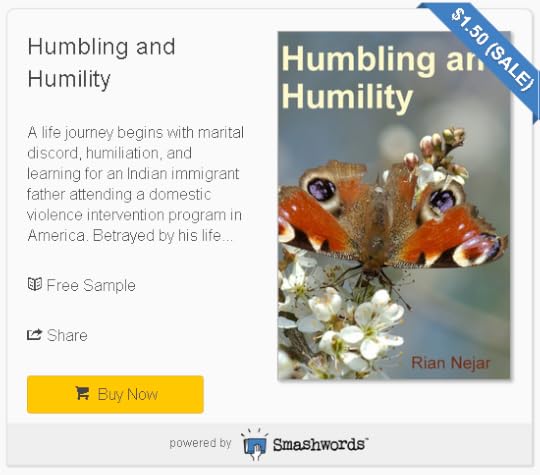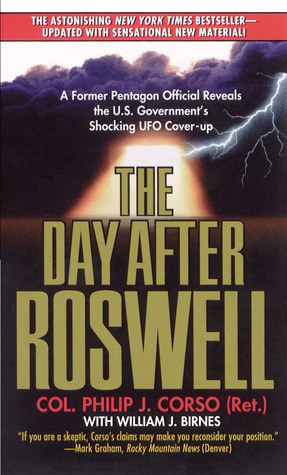Rian Nejar's Blog, page 13
August 18, 2015
Introspection: A Compulsion for Truth

Tweeted thoughts on ‘Compassion’
Almost a month since my last blog. Seeking inspiration, perhaps…the above message from His Holiness the Dalai Lama (HHDL) and my almost involuntary response to him are, I think, worthy of more thought and diligent introspection. How self-aware can one be, if one is not aware of one’s self, of one’s assimilation and response to stimuli?
An innocuous statement from HHDL: “Compassion reduces our fear, boosts our confidence, and opens us to inner strength.” Compassion is a big thing for him, for Buddhism in general. It is the term most among the religious employ to describe their ideal of ‘God.’ For instance, the All-Compassionate. But what prompted my response to him? What intention drove it; what purpose could it fulfill? What does it, the statement, and all that is associated with my response to it, really mean?
And that’s just it: a search for meaning, for deeper comprehension, for truth. The words and messages alone are insufficient, their contextual meaning, and underlying intent and sentiment, are key. I cannot speak for HHDL, but if you’ll permit me, I’ll try to interpret his statement as I understand it, and thereby reveal the sentiment, purpose, and essence of my response back to him. A peek into a part of my self, if you’ll bear with me! Stop me if it gets too dense to saunter through.
The short version? Sure… It’s easy to talk of responses such as compassion, forgiveness, etc. But without a strong foundation through comprehension, their advocacy and application, and extensions to such human responses, can become impractical and meaningless…and worse, ineffective pursuit of such pathways advocated, with hopes of possible rewards alluded to, may lead to disillusionment. Short messages are fraught with such risk. A conversation, even a dialogue, with multiple perspectives and thoughts explored, can be enlightening and truly helpful.
Compassion. Dictionaries define it as pity, as an emotion aroused by sympathetic feeling for suffering observed. Its connection and significance to Buddhism is rather clear: it is through observations of immeasurable suffering that The Buddha came to believe that suffering is one of the noble truths of life, and that compassion, a natural and biological response which no doubt filled his mind, therefore must be the salve, a possible social remedy for a gregarious species. He was, undeniably, correct in his conclusion, that compassion is a remedying approach to suffering: it is, after all, a natural, biological, response. But was he entirely correct in his assumption, his belief, about the human condition? Where there is suffering, there must also be joy, however small or fleeting.
The Dalai Lama wishes that everyone becomes more compassionate. The Ocean of Compassion among Superior Ones (from the Tibetan bLama, with the b silent, which is, literally, a superior one) advocates a quality most valued in his culture, compassion, and offers inducements to cultivating this quality: reduced fear, increased confidence, and greater inner strength. Yet compassion is an emotion invoked by one’s ability to sympathize with what is perceived to be suffering by others – which, I think, requires a fearless, confident, and strong approach to any circumstance encountered. If you are unafraid, and confident of your ability to comprehend, you can truly understand the mindset with which another suffers, and further, if you are strong enough, you can then empathize with such suffering, and share in it. This leads to compassionate human interaction, to an approach that comforts others in consternation or agony. Compassion is the result of such capacities within a mind and heart…of a capacity for deeper comprehension, interest, and kindness, and not an independent mental capability to be exercised. It’s not very practical to put the cart before the mules…
Hence my rather immediate response to HHDL: “@DalaiLama With respect, dictionaries define compassion as pity; it is a natural, biological response to suffering, an outcome of sympathy.” His Twitter account is no doubt managed by some young monk assigned to the task; I expect no reply or response. Yet, it bothers me when cultural leaders (or their agents or representatives) repeat tired old messages absent (what seems to me) a clear understanding of human nature, or contemporary grasp of such aspects of nature. How does propagating arcane, obtuse messages make any difference in the world, or bring about any change, however well-meant? What I hoped to convey to HHDL was that compassion is a human response, one that requires the development and advancement of many other human qualities for its expression. Few gain the opportunity to develop such qualities in themselves; it takes a self, and deep self-awareness, to refine oneself to such enlightenment…while belief in a self is expressly proscribed in Tibetan Buddhism.
The danger of short messages, of inducements to betterment, has not been depicted any better than by Steven Spielberg in “Schindler’s List.” In that moving story, Oskar Schindler tells Amon Goeth, the brutal and murderous camp commander, that true power is held by one who pardons a perpetrator of mischief despite every justification for punishment. Forgiveness is conveyed therein to be a more desirable quality, feeding hubris, that the camp commander practices for a while, absent clear understanding, with tragic consequences later on. I’ll leave you with the relevant YouTube clip that introduces the idea…
YouTube Clip from Schindler’s List: https://www.youtube.com/watch?v=K5lQA3bipHc
Feel free to comment and express yourself; your thoughts and comments will always add to the discussion.
~~~~~~~~~~~~


July 20, 2015
Selflessness and Spirituality: Constructs that Go Together
Many relate spirituality with being filled with an immaterial spirit, and others associate selflessness with the absence of a self, a soul. I think both these parochial schools of thought miss the mark…and here’s why.
From my own work, HnH:
Self-awareness is a difficult crown to bear, for with it comes self-doubt, and self-sacrifice. Ego is a far easier mental construct. It is easy for one to be proud of one’s accomplishments, wealth, and any station in life arrived at, and to express this in any number of outward ways. But looking inward, and evaluating one’s thought and conduct in relation to one’s hopes and aspirations for intellectual and spiritual growth, self-doubt inevitably rises within.
• • •
Ancients arrived at answers to these questions, and clarity in such aspects of human life, a very long time ago. They rendered their findings in wonderful stories and song, in poetic verses, in scared books of knowledge, and in ways of life advocated. They made it easy for us all…or did they?
But that does not sit well with me. Memorizing innumerable verses, poems, stories, and admonishments did little good for me. I had to learn the hard way, and do so through the only means available: the school of hard knocks of life. Only such learning can stick, and become part of my self.
And there indeed is such a self, that can be enlightenment in its truest sense, that learns, integrates, and enlightens others. I must know, for I did write about this too, albeit briefly.
I’ll make this short; I can only provide food for thought here.
As in the passage from HnH above, the self grows in the developing mind as recognition of one as distinct from another, from all others, and into an identity. As it grows, fueled by wonderful capabilities of our amazing brains, and our experiences, we question what we become, what we develop into, and begin to override instinctual drives. We recognize ego, and addictive aspects of pride and self-love, and work toward dissolving these aspects. We sacrifice our own desires, drives, and comforts; we empty our selves…selflessness, or caring for the benefit of others above our own, grows, from innate seeds, into commonplace habit. Meanwhile, other qualities come in to fill this emptiness that is the form, the vessel, of our selves. Humility accelerates this process.
Empathy and compassion advance this transformation of our selves, filling our depleted selves with comprehension and consonance with others around us, with all of nature. Love for all of life grows within, and fills out our transformed selves. We become…one with the essence of nature, spirits among all that is spiritual.
Spirituality is not being imbued with an immaterial spirit, or, for that matter, imbibing disorienting spirits and other such substances. Spirituality comprises humility, empathy, and compassion. Love, true love, completes it.
Do I sound too poetic, too abstract? Perhaps…but research into neural networks, and our own neurological complexity, convinces me that this is a plausible explanation. For instance, empathy – a distinct capacity of many lifeforms to know and feel what other lifeforms do – is said to be tied to mirror neurons in biological brains. The Parietal Region of the brain, known to interpret touch, temperature, and pain, among other sensations, in the brain, is said to be the seat of spiritual thought. Ever wonder why skull caps are regularly worn by strict adherents to religion?
So – construct a self, by all means…and, if you so choose, take the difficult but rewarding journey of transforming your self through your own life experiences.
Let me close with an enlightening TED presentation, “What is so special about the Human Brain,” by a neuroscientist, Suzana Herculano-Houzel:
Thoughts, comments?
~~~~~~~~~~~~~~
July 18, 2015
Spirituality

July 14, 2015
Summer/Winter Sale at Smashwords (Humbling and Humility)

‘Humbling and Humility’ On Sale at Smashwords.com through end of July ’15
Use the code SSW50 at checkout for 50% off during their site-wide promotion.
(Offer good through July 31, 2015)
~~~~~~~~~~~~
July 10, 2015
N Y Times review of Harper Lee's "Go Set a Watchman"
Review at the New York Times
Caution: the review does reveal stark differences between her prior bestseller and this newly published work...
-rn
Later: Right After The Storm Passes?

FED Chairperson Janet Yellen (picture: CNBC)
We’ve discussed this before. “Later,” says Chairperson Janet Yellen of the US FED, the organization with a treasure chest that never empties. She refers to raising the FED interest rates from their floor of 0%, of course. Something she has been saying for quite a while now.

The Volatility or Fear Index, as of July 10, 2015
Right after unusually low levels reached around May 22, 2015, volatility increased rather dramatically, peaking at ~20, as much as 60% higher. Markets globally have been roiling, what with uncertainty relating to another bailout for Greece, and a plunge in the Shanghai index after a drunken, unsustainable rise in a span of ~7 months. The Chinese government is attempting to support their market with similar measures of increased liquidity, through lowered interest rates, and by restricting trading dramatically, fearful of its majority retail investors stampeding out in panic.
But these measures – lowered interest rates, etc. – are emergency measures, are they not? They are intended for temporary relief, not extended implementation.
Or, can a government print as much as 4 Trillion dollars out of thin air (QE1, 2, 3, …), “purchase market assets,” and additionally maintain zero interest rates, effectively providing money (capital) freely to big businesses, with no accompanying regulation of its use, for 6 years and more? Is this how a floundering economy is bailed out, and stock markets supported (past 6 years of a bull market in the US enriching the wealthiest), or is this how leaky, weak market bubbles are propped up, and profits carved out by the top 1%?
How much later does the FED intend to keep their artificial and last resort economic measure going? I see fear in Janet Yellen’s indecision (doesn’t her face show it?), not circumspection. Fear of adding to the market’s doldrums, of losing the illusion of a growing economy. Is the FED guiding the economy, or is the market wagging the FED?
Nevertheless, there are clearly waves of fear in the market; the VIX is moving violently. I remain long VIX, making small, opportunistic transactions along the way.
~~~~~~~~~~~~
June 26, 2015
What’s Ants got to do with it?
Who needs an Ant when an Ant can be Broken?
Remind you of an old favorite? Fret not, a YouTube clip is at the end. But this post is about how amazing and complex ants are, and how their intelligence has remained unrecognized for long. And what they can and do teach us intelligent, sentient humans.
In HnH, I wrote about two essential qualities, that complement and enhance our intelligence, restraint and social consciousness. Contrasting these aspects with freedom and individual pursuits of happiness, I’ve tried to convey my own humble learning from life…and even brought in ubiquitous ants into discussions described in the book. The subject came up as we discussed social organizations and how order and peace may be maintained within; the discussion group addressed violence in the domestic and social context. Little did I know, then, that ants had perfected their learning of beneficial social and cultural aspects, that I too am beginning to appreciate more, in their evolution over hundreds of millions of years.
Deborah Gordon, a biologist at Stanford University, calls it “the rewards of restraint.” She explains, from her many decades of research on ants, how decisions made by individual ants alter the behavior of the colony as a whole, how they communicate with each other to give rise to a social consciousness that makes their communities highly resilient. Individuals, on their own, may not be very efficient, but as a team, a colony, ants are formidable, and have survived far longer than humans are known to have existed. Antoine Wysatch of the University of Sussex says we’ve been looking at ant intelligence the wrong way. I so wish I could go back to my classes and discuss this with Sid the counselor (who called Ants ‘rigid’ and ‘programmed’) once again! We have, indeed, been studying life anthorpomorphically, as we humans like to view it, not as it truly is. Takes humility to restrain our tendencies, yes?
So just what do ants have to do with it? Everything…they are hunters, farmers, soldiers, workers, builders, worshippers, and loving nurturers and parents. They are individuals, and yet so much stronger in their communities.
There is a sneaky message in this post…the passionate artist elaborates, in her own inimitable way, on it below! If you do guess this message – that is slowly percolating into human social consciousness through the work of some amazing individuals and organizations – do let me know.
And now, as promised –
Tina Turner: What’s Love Got To Do With It
~~~~~~~~~~~~~
June 20, 2015
Review: The Day After Roswell
(A 13.5 minutes NBC Clip on the Roswell incident with the late Col. Philip J. Corso)
An astoundingly detailed and engaging memoir, written in a frank, lucid style, one most interesting, especially for an engineer and a researcher. Its complex story, woven deftly through military and political events, and international intrigue, sheds new light upon many confusing aspects that ordinary citizens can hardly, if ever in our humdrum lives, be expected to comprehend. Written and published just a year before the principal author‘s death, this work convincingly represents his eloquent sentiment expressed within: Hide the truth and the truth becomes your enemy. Disclose the truth and it becomes your weapon.

The Day After Roswell (book cover image from Goodreads)
Was Col. Corso describing the strange events and discoveries he was privy to with absolute accuracy and truthfulness? One need look no further than the foreword to this book, written and retracted by Senator Strom Thurmond, to validate the author’s integrity and the highly controversial nature of his disclosure. A provision of an unconditional recommendation, and its retraction because of the appearance of complicity, testify to both the esteem the principal author was held in, and the very nature of the contents of the book. And what can a politician do, but cover up a cover up?
Many of the disclosures within nevertheless beggar belief. Yet, as an electronics engineer, I have always wondered about a very rapid development of electronics miniaturization immediately after 1948, when the first point-contact transistor was invented. Though William Shockley is known to have been working on semiconductor devices before 1948, it is indeed quite curious that integrated circuits combining a number of such transistors and interconnections were invented shortly thereafter, and IC’s and electronic systems based upon them such as personal computers became feasible in about a couple of decades. Rapid technological developments have also been seen in other areas of technology – development taken for granted by consumers, though their derivation in such short time spans remains unquestioned and unclear.
Though the author provides some photographs of himself in the army, and a few documents relating to Project Horizon, a Lunar outpost contemplated, in the Appendix, I felt the absence of any representation of his ‘treasure trove‘ of items, that he was personally responsible for, in his Army R&D role. There are no photographs of the very items he claims to have diligently introduced into the industry…and though this can be understood as his strict adherence to secrecy requirements in his role, absence of even the most basic pictures of his Roswell Junk troubled me in light of his devotion to the task of disseminating the technology to the industry.
Did we have help, intended or otherwise, in the developmental strides we’ve made as a species? Did we gain, however stealthily, from interaction with a hostile culture as Col. Corso asserts? Did the presence of an enemy of humans unite our different human cultures in a joint effort at defending our world? Readers must answer these questions themselves; yet Col. Corso does present a story that, while fantastic, ties together many inexplicable events and experiences of humans all across the globe. If one were to look for hints of what national leaders thought, or knew, one need only listen to President Ronald Reagan who alluded to the possibility of a most unimaginable threat. And, it was during the leadership of Presidents Reagan and Gorbachev, that a defense against such possible threats (SDI, or ‘Star Wars’) was established, and the cold war officially toned down.
An excellent book overall for diligent readers and seekers…one that poses very many intriguing and profound questions to ponder upon. I read this book first almost immediately after it was published, more than a decade and a half ago, and enjoyed my second, detailed reading even more.
~~~~~~~~~~~~
June 12, 2015
Review of “A Profound Mind”
by H. H. the Dalai Lama (Author), Nicholas Vreeland (Editor) and Richard Gere
An easy to read book that is simultaneously illuminating and revealing; while it sheds light on Buddhism as a compassionate, religious and spiritual path, it also brings up inconsistencies and limitations of this ancient belief system.
For instance, whereas the author (His Holiness The Dalai Lama) states that “The existence of the soul or self…is not only firmly denied in Buddhism, belief in it is identified as the source of all our misery,” he goes on to indicate, a few pages on, his belief in “past lives” in his explanation for variations in our constitution: “…but our tendencies…which Buddhists believe to be inherited from past lives…” He admits that such beliefs came about… read the full review
• • •
I happened to see an interesting movie recently – “A Monk with a Camera” – a tale of a dandy, playboy, and seeker as described on its cover. This is the continuing story of a very thoughtful and humble human, the editor of the book above, one who grew up in a life of displayed excess and moved into a purposeful life of asceticism.
I admire and respect Nicholas Vreeland’s commitment and devotion to a cause much greater than himself. He would perhaps say – as is the rule in Tibetan Buddhism – that there is no self. Yet what he has accomplished, in his personal transformation and commitment to a greater purpose, no other ‘self’ may have been able to!
Nicholas Vreeland edited a book, a collection of talks by His Holiness The Dalai Lama, a leader of the belief system he has committed his thoughts and efforts to, which I was compelled to read and review given Nicholas’s advancement in his adopted “faith.”
That review, which, while critical, intends no offense or harm to the authors who are eminent men of peace and learning, is in the principal link at the head of this post. It is rather long, and therefore not included in its entirety.
I’ll look forward to your thoughts and comments on the review…
~~~~~~~~~~~~~~
May 31, 2015
Kill The Messenger: The Gary Webb Story

Sandstone towers in the desert
Eight years ago, in a busy domestic terminal of the LA airport, a pretty girl who befriended me with a gift of a book asked me if I was proud of my country. I said something to the effect of – “I am, of the country, but not of what it does.”
She’d walked up to me in the busy terminal and handed me a book on leadership she gathered at a local business conference. I suppose I looked the part, attired formally because I was traveling internationally on business, and perhaps looked a bit lost and in need…it was late 2007, the year my life had unraveled. I agreed to accept her kind gift, to a stranger, if she allowed me to buy her a drink.
Melissa and I talked for more than an hour, and it was during this very pleasant diversion that my journalist companion – she was the managing editor of a small newspaper in the northeast of the country – queried me about my love for America. We were talking about events in Afghanistan and Iraq; that I was Indian must also have had a part in arousing her curiosity about my feelings. I’ve thought often about my first response to her; it was no doubt sincere, but what exactly did I mean?
I saw “Kill the Messenger” this past week. A diligent journalist said to be driven to suicide by a smear campaign, because he’d uncovered the Central Intelligence Agency supporting and funding Nicaraguan Contras (rebels fighting a government unfriendly to America then) with arms and money generated through drugs imported into and sold in America. This Hollywood depiction troubled me enough to investigate further, and I found a CSPAN Journalist Roundtable interviewing Gary Webb below. Both are well worth the time.
With very powerful sections of the government arrayed against him, and with similarly influential segments of the journalist community attacking him, Gary Webb found that his life not only unraveled, but it became, to him, unbearable. A diligent investigator, who wished only that he could bring the truth out into public view, and be recognized for it, found a juggernaut of a state, that did admit to the veracity of his findings, rolling right over him.
A man of integrity, a husband and a loving father of three (a clip of Gary and his kids is shown at the end of the movie), one who awakened his country’s consciousness to the actions of its government, was lost to the world in late 2004. His death, said to be caused by two (yes, two) .38 gunshot wounds to the head, was ruled a suicide. A father, devoted to his children, abandoning them in their tender ages because his reputation lay in ruins?
The outrage of the American people – primarily black – at such actions, by covert agencies of government, was evident then. But it isn’t just covert agencies, working toward international regime change, that exploit ordinary Americans, particularly those disadvantaged by race and history. Such lack of empathy and compassion appears institutionalized today. Outrage will build up again, but will likely be drowned by political campaigns, fueled by billions of dollars, for the upcoming 2016 election.
So, Melissa, my dear friend, what am I, an ordinary citizen, to think about America and what she does?
~~~~~~~~~~~~~~

















